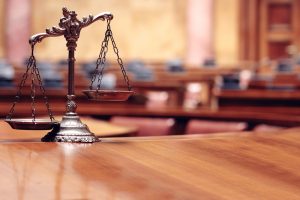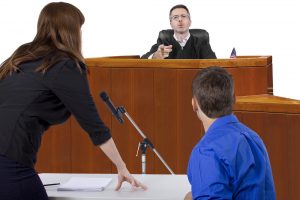Mistakes by NJ Courts When Issuing Criminal Sentences
Whether to submit a motion for reconsideration or an appeal is a tactical decision that should be discussed with your attorney.

Mistakes of the law, sometimes known as combined errors of law and fact, occur when a court either misinterprets or misapplies legal precedents to facts. Legal mistakes may be repaired by filing an application with the court within 20 days of receiving the court’s order if it is a final decision or any time prior to the final judgment if the decision is not final. If the decision is final, the matter can be appealed to the Appellate Division rather than being returned to the lower court. Whether to submit a motion for reconsideration or an appeal is a tactical decision that should be discussed with your attorney.
The most prevalent kind of judicial mistake is factual mistakes. They are also the most challenging to rectify. There are restrictions on what conclusions a court may make when the facts are disputed if the court made factual conclusions based on a motion without witnesses. The court’s interim fact-finding is restricted to non-controversial facts. To refute a truth, one must give alternative facts or evidence, not just a blanket denial. If the parties offer contradictory facts, the court must have a hearing before making a final determination on whether the facts are relevant to the conclusion. On interim matters, such as supporting current litigation, the court will frequently make findings based on the record without a hearing, with the understanding that the order may be amended if new or alternative facts are established.
What impact can simple inaccuracy have on individuals convicted of crimes in NJ?
The plain error affects the defendant’s substantive rights because it is an error or defect that has an effect even when the parties did not bring it to the judge’s attention during the trial. Of course, some obvious faults or flaws that impair significant rights may be discovered despite the fact that they were not brought to the court’s attention in the form of timely objections. A successful appeal of a criminal conviction in New Jersey, as well as the overturning of a range of court decisions and judgments, might be based on simple mistakes.

If an appellant argues the trial judge made a mistake, the appeal court must first determine whether the error was made at all, using whatever criteria applicable to that sort of mistake. If it was an error, it then determines if it was damaging. If it wasn’t, the court won’t overturn the decision. If the claimed error was not mentioned at trial, the court follows the same procedure: it determines if it was error before determining whether it was a simple mistake. Remember that the criteria for deciding whether a mistake not raised below was “clear” are the same as the criteria for deciding whether a mistake raised below was “harmful.” In each case, the question is whether the error is clearly capable of generating an unjust result. The only real distinction is in the terminology.
What Is the Procedure for Handling Simple Errors in New Jersey Criminal Cases?
To correct final legal or factual judgments, an application to the trial judge or an appeal may be employed. Within 20 days after the judgment, the above-mentioned motion to the trial judge must be filed. An appeal must be filed within 45 days after the judgement. The Appellant Court is not bound by the trial court’s legal interpretation decision, and it has the authority to reverse it if a mistake is uncovered. The appeals court is regarded to have original jurisdiction in this matter.
A trial court’s fact-finding will not be overturned unless there is an evident error. If the law has been applied to the facts erroneously, it is essentially a legal error that the higher court can address without regard for the trial court’s findings.
A simple error is a mistake in a lower court decision or action that an Appellate Court finds to be glaringly obvious and reverses. When a criminal defendant raises an argument on appeal that was not raised before the judge, the court of appeals may examine it for a simple error.
An application to the trial judge or an appeal may be used to rectify final conclusions of law or fact. The above-mentioned motion to the trial judge must be filed within 20 days following the ruling. Within 45 days following the verdict, an appeal must be filed. The Appellate Court is not bound by the trial court’s judgment on legal interpretation and has the power to overturn the court if a mistake is discovered. In this case, the court is considered to have original jurisdiction.
Unless there is an obvious mistake, a trial court’s fact-finding will not be overruled. If the law has been applied 
A plain error is a mistake in a lower court judgment or action that is found by an appeal court to be glaringly clear and results in a reversal. The court of appeals may consider for simple mistake where a defendant advances an argument on appeal that was not brought before the judge. Plain mistake is defined by federal procedural standards as a highly prejudicial error that affects substantial rights.
Questions about Appealing a Criminal Case? Contact our Criminal Law Attorneys for a Free Consultation at our Little Falls Office
If you feel your criminal case was handled with errors in New Jersey, contact us right away. Your rights must be protected.
At The Montanari Law Group, we represent clients in Clifton, Totowa, Cedar Grove, Wayne, Paterson, Garfield, Little Falls, and throughout the greater Passaic County area. Whether you have suffered what you believe to be an unfair outcome involving criminal charges because of plain error or know someone who has, contact us immediately.
We recommend contacting our offices by calling 973-233-4396 or toll-free at 888-877-7985 today for a free and confidential consultation to discuss your particular case.
